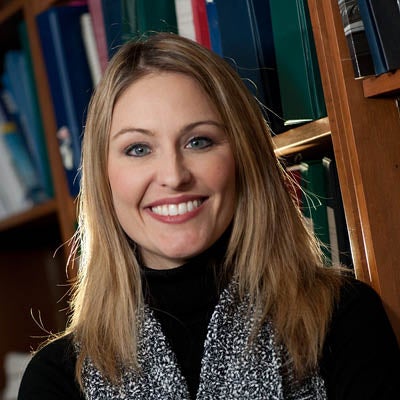The Ken Kennedy Institute's August Member of the Month, Dr Jamie Padgett, is the Stanley C Moore Professor in Engineering and the Faculty Lead of CERISE. She researches the application of probabilistic methods for risk assessment of infrastructure, the subsequent quantification of resilience and sustainability, structural portfolios such as regional portfolios of bridges or oil storage tanks exposed to multiple hazards including earthquakes, hurricanes, or aging and deterioration.
Dr. Padgett currently serves in leadership roles within several large national or regional research efforts including the NIST Center of Excellence for Community Disaster Resilience at Colorado State University, the NSF NHERI Cyberinfrastructure “DesignSafe-CI” at University of Texas, Austin, and the Severe Storm Prediction Education and Evacuation from Disasters (SSPEED) Center at Rice University.
What is your favorite book?
I'll take the liberty of modifying your question to favorite experience reading a book... Probably reading "Rosie Revere, Engineer" with my kids!
How do you explain your research in one sentence?
My research seeks to understand and improve the performance of structures and infrastructure in the face of multiple hazards, such as hurricanes, earthquakes and floods, by leveraging a combination of physics-based, data-driven, and probabilistic modeling to assess risk and resilience of these systems.
What is your favorite aspect of your research?
Everyone has had a personal e experience with natural hazards, and I love that this work has direct ties to public safety and quality of life that many people can relate to. Given the interdisciplinary nature of grand challenges related to climate adaptation and community resilience, I particularly enjoy the opportunity that my research presents work with a diverse group of scientists, engineers, and humanists that all bring their insightful and unique perspectives to bear on the problem.
What challenges do you see in your research that you didn't expect?
Maybe I should have expected it, but I have found that our memory is unfortunately very short when it comes to lessons learned from past disasters! So, while there are many technical challenges related to our work, I think a big challenge is finding ways to capitalize on opportunities to boil down and translate the findings in a practical context.
What is a favorite experience with the Ken Kennedy Institute?
I appreciate the effort that KKI is making to forge new partnerships and relationships across campus. For example, I've truly enjoyed the "research cluster" discussions that the Ken Kennedy Institute has spurred.

